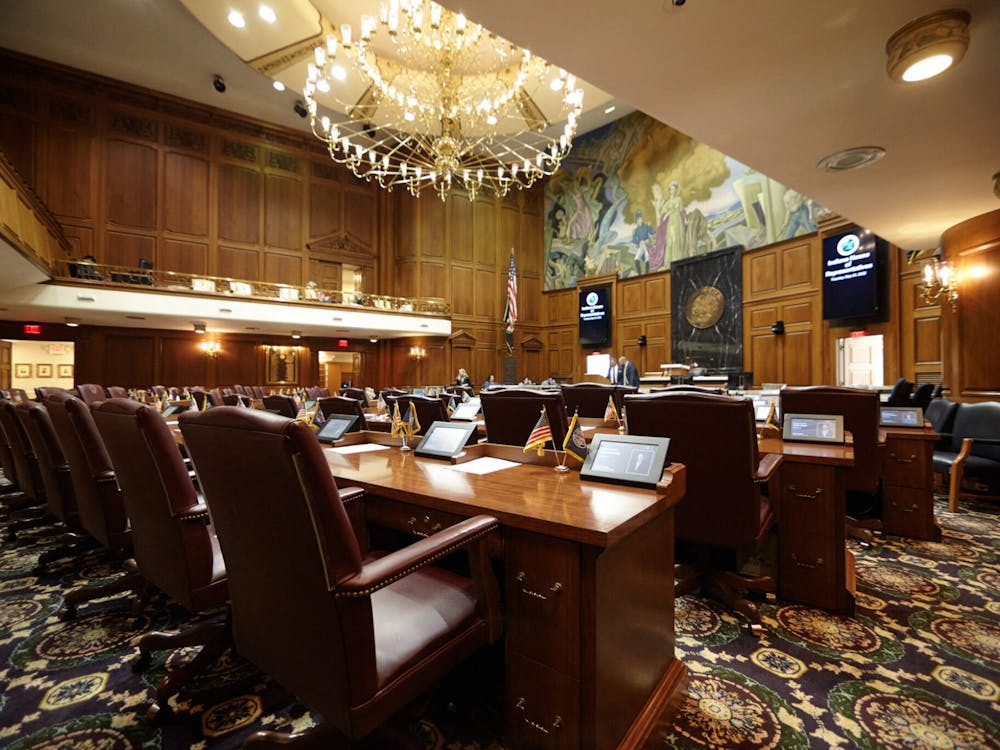INDIANAPOLIS (AP) — Fewer families would qualify for private school vouchers under changes Republican lawmakers have made to GOP Gov. Mitch Daniels' controversial proposal.
The voucher program would use taxpayer money to help parents send their children to private schools. The Republican-led House Education Committee amended the bill Tuesday to tighten income guidelines for the "school choice scholarships" and to specify that participating private schools must fall under state accountability rules.
So many people wanted to testify at the legislative hearing that committee chairman Rep. Robert Behning, R-Indianapolis, said after four hours that the panel would break for the day. He later announced that the committee would reconvene Wednesday morning to consider the bill, and lawmakers could vote on the proposal then.
Critics said vouchers drain money from public schools, which accept all students, and send it to private schools that can pick and choose who is admitted.
"It's only going to worsen the two-tiered system of public and non-public schools," said Dena Rae Hancock, a mother of seven from Indianapolis. "Separate but equal is inherently unequal."
Advocates said vouchers would give low- and middle-income families the same education options as wealthier families, who can choose to move to a school district they like or pay private school tuition.
"This is about choices," said state Superintendent of Public Instruction Tony Bennett, who attended Catholic schools while growing up and decided to send his own children to public schools. "I believe parents should be able to choose either side."
Rep. Shelli VanDenburgh, D-Crown Point, told Bennett that by supporting the voucher proposal, he was essentially saying that public schools cannot be fixed and that kids need another option.
"You're saying that you cannot turn schools around," she said. "It's sending a negative message about the job you're doing."
Bennett said low-income students simply deserve the same options other families have.
"This is not a condemnation of our public school system," Bennett said.
Helen Day, a nurse and mother of six from Indianapolis, said she wanted the option of sending her children to private schools. A scholarship from a nonprofit group helped her send her older children to attend private school in Indianapolis, but now they are in college and she can no longer afford to send her younger children to private school.
"My family has seen the benefits that school choice has to offer," she said. "I am not happy with the education that my younger daughter is currently receiving."
VanDenburgh questioned whether the public school in Day's district is academically failing. Day's older children attended Cardinal Ritter High School, where 77 percent of students passed math and English statewide tests last year. Without the scholarship, she said, they would have attended Pike High School, where just 45 percent passed both exams.
"Educationally, they were better off," Day said. "It's a parent's choice."
VanDenburgh said private schools play by different rules than public schools. Public schools can't force parents to be involved with their students' education, for example.
"Their hands are tied," she said.
The bill as originally proposed included a sliding scale that would have given vouchers to wealthier families. A family of four earning more than $100,000 a year would have qualified for a scholarship under that plan.
But lawmakers said they wanted to focus on more low- and middle-income families. The revised bill limits scholarships to families earning no more than twice the income limits for the federal reduced lunch program, or about $81,000 a year for a family of four.
Under the amended proposal:
— Only children currently attending public schools would be eligible for vouchers.
— Families that qualify for the reduced lunch program — those earning about $40,000 for a family of four — would be eligible for vouchers worth up to 90 percent of the per-student funding their current public school district receives. That amount varies by district, but the statewide average is about $5,500. That means those families would get vouchers worth up to about $4,950.
— Families earning up to twice that amount would qualify for vouchers up to 50 percent of their district's per-pupil funding. Using the statewide average, those vouchers would be worth about $2,750.
— The maximum voucher amount for students in grade kindergarten through 8th grade would be $4,500.
— Private schools participating in the program would have to take statewide ISTEP exams as public schools do and would fall under state academic accountability laws.
— Because the scholarship amounts are only a percentage of public school per-student funding, the state could save money from the program. Any savings would be redistributed to public schools statewide.




